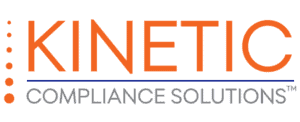Risk management is a vital planning step for any organization. Risk management involves identifying and minimizing potential risks for your company. It’s essentially the process of anticipating potential risks a company could face, and taking the necessary steps to reduce the possibility of them occurring. Risk management is important because it protects both your organization and your customers. It can also help define goals and put your organization on a path to success. During product development, it can prevent and help you overcome unexpected obstacles, saving you time and money during this critical go-to-market phase.
Risk and compliance
An important step in the risk management process is working with regulators, such as the FDA, on risk and compliance. Medical device and technology companies face many enforcers and various regulations that can help guide decision making when taking steps to avoid risk. Key enforcers include, but are not limited to, the Food and Drug Administration, the Department of Justice, the Federal Trade Commissions, various organizations at the state level and even competitors. Identifying key regulators and building relationships with them can help you navigate these risks.
Another key element in successful risk management is an effective compliance program, especially in the medical technology industry with its strict rules and rapidly evolving regulatory landscape. An effective compliance program is generally viewed as a mitigating factor by the regulatory enforcers in case something were to go wrong. Also, it will put you in the driver’s seat, empowering you to be proactive instead of re-actively playing defense.
If you are an emerging company not yet ready to hire in-house compliance staff, one option to consider is engaging an external expert (someone seasoned who has “walked the walk”) to partner with you in developing your compliance strategy. Among other things, a seasoned expert will be able to find a compliance strategy to fit your unique needs and budget so that it will protect your business while enabling growth.
The FDA is here to help, and we can help you work with the FDA
The Food and Drug Administration, or FDA, is a top regulator in the U.S. responsible for protecting the population by regulating food, drugs, medical devices, cosmetics and other products. From thermometers to artificial hearts, the FDA regulates medical devices to ensure products are safe and effective for human use.
Working with the FDA can be challenging but also creates a barrier to entry for competitors. To work effectively with the FDA, we encourage you to consider their requirements before, during and after the development of your product. Before development, complete initial research on the FDA’s site to classify your product and for recommendations on how to get your product cleared or approved. It is important to be familiar with the regulations to avoid problems later.
During product development, follow the FDA’s rules and guidance documents. If a step or requirement seems unclear, it is a good idea to reach out to knowledgeable experts to clarify any requirements, avoiding potential problems later.
When it comes time to work directly with the FDA on a clearance, building a strong relationship with the FDA is key to achieve market access in a timely manner. Remember these tips as you begin communication with your reviewers.
- Be organized and keep communication concise.
- Remember reviewers are not versed in your specific design and device – your submission should give them enough information to understand the technology.
- Use their feedback in future product iterations.
- Attend public presentations where the FDA is present to grow your internal network and stay up-to-date on current regulations.
Kinetic Compliance can help facilitate this relationship with the FDA during your submission process, allowing you to focus on other areas of product development and growth.
Contracting 101 in the Medical Device Industry
In addition to product testing, it is also important to be familiar with FDA requirements for important contracts, such as with distributors and suppliers. Here are a few examples to consider when working on contracts related to the medical device industry:
- In the case of a product recall, plan for corrective action and decide how it will be communicated. Address how you will work together with the other party in executing a recall and who should pay for what.
- Be sure distributors track all products. You will need this information in case of a recall.
- For complaints and Adverse Event Reporting , decide in advance how the parties will work together to effectively and compliantly manage these.
- No off-label promotion — have your distributor or agent agree to market your product only for its intended use.
- In some countries, the distributor must own the product registration. Take steps to protect your company and minimize the risk of being at the mercy of your distributor in case things go sour between you by agreeing in advance on a buy-out right for the product registrations.
Most importantly: Keep calm and don’t get overwhelmed! There’s a lot to consider when looking at a smart organizational risk management strategy. We at Kinetic Compliance Solutions are happy to help you and your team!

